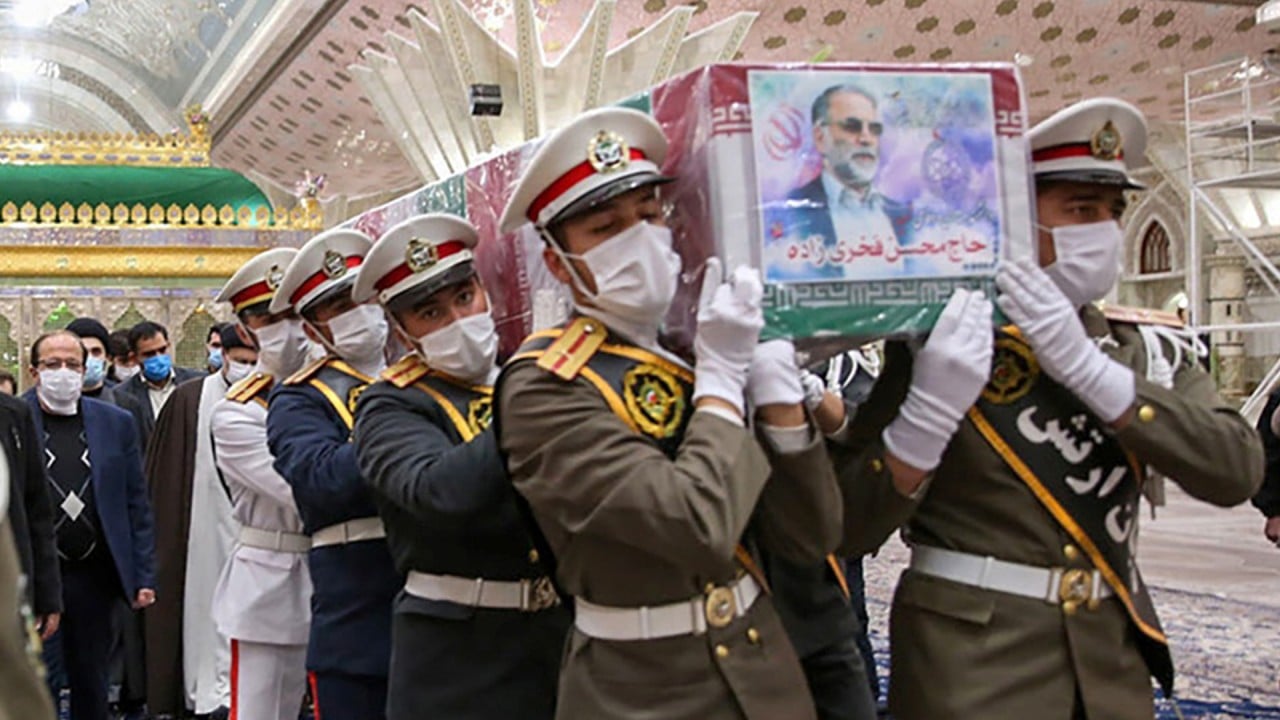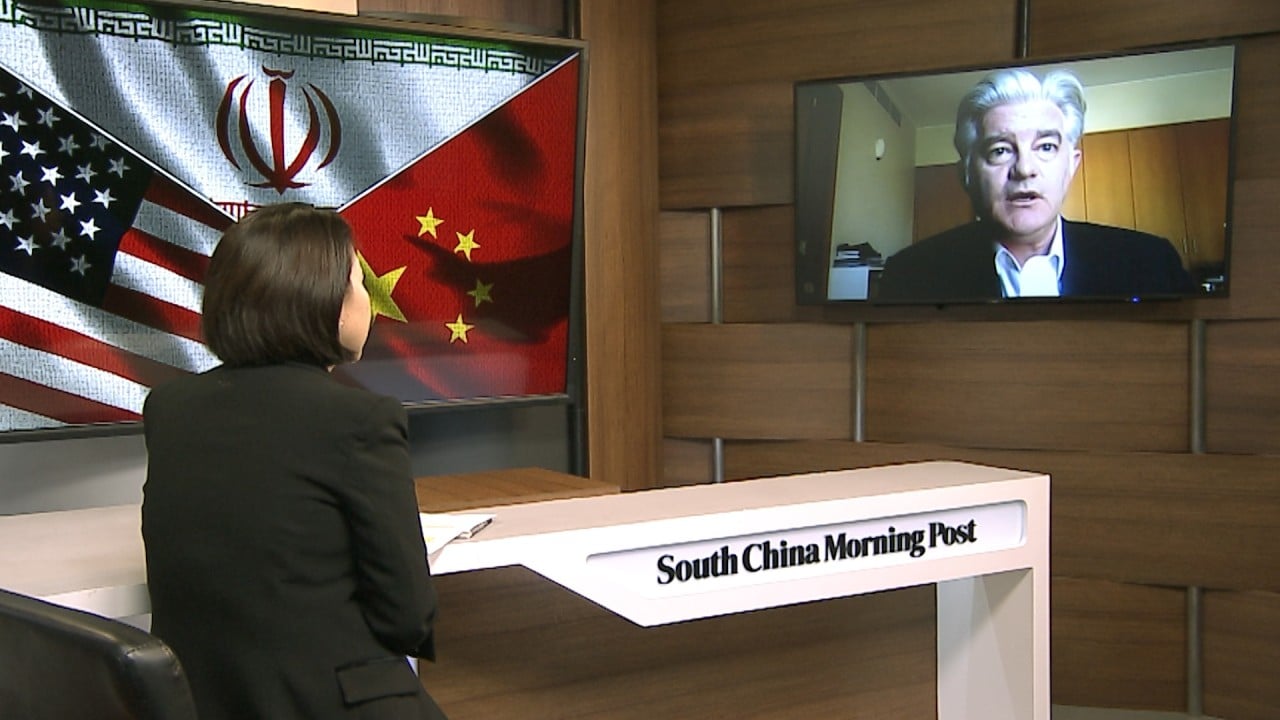
Iran steps up uranium enrichment as US keeps aircraft carrier in Gulf
- The move represents a key acceleration in the nation’s nuclear programme, and is the latest breach of a 2015 deal with international powers
- President Hassan Rowhani is said to have ordered the move after the US delayed withdrawing the USS Nimitz, citing unspecified threats against Trump
Iran started the process of enriching uranium to 20 per cent, a key acceleration in its nuclear programme, hours after the US abandoned its plan to pull an aircraft carrier from the Persian Gulf.
The United Nations International Atomic Energy Agency was informed on Saturday by Tehran that authorities might resume efforts to produce the fissile material at the Fordow facility, in the latest breach of Iran’s 2015 nuclear deal with world powers.
Such a level of purification could be used for medical and energy purposes, but could also be purified to weapons grade at short notice.
Government spokesman Ali Rabiei said that President Hassan Rowhani ordered the move early on Monday, soon after the US delayed withdrawing the USS Nimitz from the Persian Gulf, citing unspecified Iranian threats against outgoing President Donald Trump.

The Trump administration abandoned the 2015 accord and imposed sweeping sanctions as it sought to weaken Iran and force it back to the negotiating table in search of a broader and stricter accord.
Concerns of a conflict in the final weeks before Joe Biden takes over have mounted, especially around the recent assassination of a top Iranian nuclear scientist and this week’s first anniversary of the killing of the country’s leading general.
Iranian Foreign Minister Mohammad Javad Zarif tweeted on Monday that Iran’s move to boost enrichment could be reversed if other signatories of the deal, known as the Joint Comprehensive Plan of Action, fully complied with its terms.

02:10
Iran vows revenge as it holds funeral for assassinated nuclear scientist Mohsen Fakhrinzadeh
Israeli Prime Minister Benjamin Netanyahu, an opponent of efforts to limit the Islamic Republic’s nuclear activity in return for sanctions relief, said enriching uranium to 20 per cent showed Iran’s true intentions.
“Iran’s decision to continue violating its commitments, to raise the enrichment level and advance the industrial ability to enrich uranium underground, cannot be explained in any way except as the continued realisation of its intention to develop a military nuclear programme,” he said. “Israel will not allow Iran to manufacture nuclear weapons.”
Iran blamed Israel and the US for the killing of atomic scientist Mohsen Fakhrizadeh in November.
The January 3 anniversary of General Qassem Soleimani’s assassination passed without incident or a major escalation from either side, yet Monday’s enrichment decision still comes at a sensitive time. Biden, who takes office in two weeks, has vowed to return to the nuclear deal if Iran does, too, but any major flare-up now could harm those efforts.
How will the US re-engage with the Middle East in a post-Trump world?
Iran has long denied any military dimension to its nuclear programme and insists that its atomic activities are for civilian purposes.
It has continued to allow stringent UN inspections called for in the nuclear pact, which world powers sought because they were suspicious of Iran’s nuclear ambitions.
Even when Iran does gain a stockpile of 20 per cent enriched uranium, it would still be a way from accumulating all the components required for a weapon.

05:06
US-Iran tension: Where does China stand?
Uranium must be enriched to 90 per cent to build warheads, though lesser levels would be considered significant steps toward that capability. Iran started breaching enrichment levels in July 2019 in response to Trump leaving the nuclear deal and reimposing sanctions.
At that time, it announced that enrichment levels had reached 4.5 per cent. The current terms of the nuclear deal limit Iran to producing uranium enriched to 3.67 per cent – the level needed to fuel nuclear power plants.
Iran first acquired 20 per cent enriched uranium during the government of Mahmoud Ahmedinejad but abandoned the process in 2013, following a preliminary nuclear agreement with world powers, including the US, Russia, China and the European Union.

